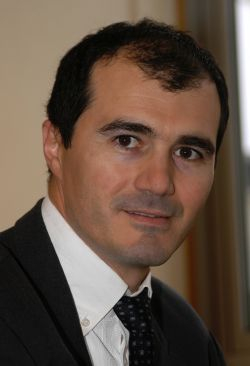
Jean-Louis Stasi
Senior Vice-President
Schneider Electric CIS
Russia has an enormous energy resource, namely its energy efficiency potential. By its ability to ensure Russia's economic growth, it could exceed expected primary energy production increase by twofold to fourfold by 2020.
Present-day Russia inherited an energy-intense and energy-inefficient economy from its Soviet past. However, a lack of effective national energy efficiency policies coupled with unbalanced energy pricing policies, a lack of proper legislation, regulations, institutions and general public awareness of energy-saving opportunities resulted in the conservation of high energy intensity over the last 15 years.
The necessity for Russia to improve its energy efficiency cannot be overstated. For example, industrial energy consumption per euro of gross domestic product is about seven times higher in Russia than similar indicators in the United States and in Europe, according to data from McKinsey. President Dmitry Medvedev has himself affirmed that energy efficiency and energy conservation are now among the five strategic priorities for Russia's technological development.
In November 2009, the State Duma passed the federal law on energy conservation and increasing energy efficiency. The law is aimed at reducing energy consumption nationwide and includes a number of measures that have a significant impact on a broad range of companies and industries in Russia, as well as individual consumers.
Thus, the fact that energy efficiency is high on the agenda of most people is now undoubted. However, understanding of what energy efficiency really involves and how energy saving initiatives can be implemented remains fragmented.
For this reason some companies have defined two approaches to energy efficiency: passive energy efficiency and, more significantly, active energy efficiency.
For many, passive energy efficiency is regarded as the installation of countermeasures against thermal losses, the use of low consumption equipment and so forth. And these are only passive countermeasures that largely mitigate energy loss rather than the energy deployed.
Active energy efficiency can be achieved when energy-saving devices and equipment are not only installed but they are also controlled to use only the energy required.
Companies that offer active energy efficiency should complement their products with services including advice, implementation strategies, monitoring and control solutions and compliant products, all backed by excellent service to help maintain the savings.
The four sustainability steps that companies offer to achieve successful energy efficiency are:
- Measure energy use to identify potential savings and malfunctions.
- Install low consumption equipment and systems.
- Improve long-term use by deploying automation management, consulting, training and tracking resources while maintaining high performance.
- Continuously analyze energy savings through maintenance, supervision and monitoring.
To continue to balance supply and demand efficiently, the grid needs to become smarter. The Smart Grid is transforming the way we all use energy today. By turning the classic linear energy grid into an intelligent and interactive network, it is changing our behaviors, influenced by four main triggers:
- Renewable energies, allowing consumers to be their own utilities and creating the need to connect these distributed sources to the central grid.
- Active energy efficiency and energy management, making energy visible and giving consumers the means to act on their energy consumption.
- Electric vehicles, reshaping the way everyone thinks about private and public transportation.
- Real-time grid management, to anticipate consumption and adapt energy supply accordingly.
How do we make the Smart Grid happen? Today's grid functions in a top-down way. Tomorrow's smart grid will be bi-directional: Electricity will flow out of homes and offices as well as into them. Today, centralized supplier-controlled power is fed into the grid based on consumption predictions and then adjusted at the margin according to peak demand. Tomorrow, demand and supply will interact intelligently in an efficient, decentralized interoperable grid. Today, providers must come and check meters on a regular basis. Tomorrow, consumption data may transfer automatically, giving proconsumers and utilities a real-time estimate of electricity consumption. Today, few people know how much electricity they consume until they get their electricity bill. Tomorrow, consumers will be able to adjust their energy demand to moments when prices and demand are at their lowest. Today, the causes of power cuts have to be manually identified on the grid. Tomorrow, software will detect where cables or equipment are damaged, making blackouts, which carry such a high economic cost, much rarer.
Thus, the Russian trend toward energy efficiency is irreversible. By implementing integrated energy management solutions in industrial, commercial and residential spheres today, up to 30 percent of the world's final energy consumption could be saved.
A Message from The Moscow Times:
Dear readers,
We are facing unprecedented challenges. Russia's Prosecutor General's Office has designated The Moscow Times as an "undesirable" organization, criminalizing our work and putting our staff at risk of prosecution. This follows our earlier unjust labeling as a "foreign agent."
These actions are direct attempts to silence independent journalism in Russia. The authorities claim our work "discredits the decisions of the Russian leadership." We see things differently: we strive to provide accurate, unbiased reporting on Russia.
We, the journalists of The Moscow Times, refuse to be silenced. But to continue our work, we need your help.
Your support, no matter how small, makes a world of difference. If you can, please support us monthly starting from just $2. It's quick to set up, and every contribution makes a significant impact.
By supporting The Moscow Times, you're defending open, independent journalism in the face of repression. Thank you for standing with us.
Remind me later.





